not now
Six Impossible Things
I have a couple of ... um ... issues with this review by Samuel Graydon in the Times Literary Supplement of what looks like a useful little book, Six Impossible Things by John Gribbin, but it's a great read and does a pretty good job in summarising the core problems of the physicalist/realist view of the world, time, space and everything in it and the im/possibilities afforded by quantum theory.
i hacked it a bit — apologies ...
Depending on how you interpret the results from a litany of physical and mathematical experiments, you are left, basically speaking, with only so many possibilities of how you might understand the world. In Six Impossible Things, John Gribbin chooses six of them and he sees them as solaces, interpretations which offer consolation in the face of the mighty mysteriousness of the ten to the power of five hundred universes and the eleven dimensions.
One : The world does not exist unless you look at it. Two : Particles are pushed around by an invisible wave. But the particles have no influence on the wave. Three : Everything that could possibly happen does, in an array of parallel realities. Four : Everything that could possibly happen has already happened and we only noticed part of it. Five : Everything influences everything else instantly, as if space does not exist. Six : The future influences the past.
Link : https://www.the-tls.co.uk/articles/the-world-is-not-enough/ Archive : http://archive.ph/i8qfh
Op donderdag 16 juli om 10 uur in de ochtend, krijgt meneer Van D. het Ombra mai fu uit Handels Serse te horen, gevolgd door de Vocalise van Rachmaninov. Op Romance de Mignon van Henri Duparc lopen we achter zijn eenvoudige kist aan, de aula uit, naar het veld met algemene graven op de begraafplaats Sint Barbara.
de eenzame uitvaart van meneer van d. (vk 30-9-20)
about the old zen masters who went on and on until they were blue in the face about nothing
about the old zen masters who went on and on until they were blue in the face about nothing, literally : it was a kind of trick — a door through which you have to go to get to 'everything'. it is as if they were saying, to see everything you must first see nothing, you must become nothing — and you must be nothing without wanting to be something because, i think the old zen masters understood this, in nothing there is no other and if you experience there being no other then suddenly you realise that you are many things — not just one thing.
how i changed the life of the theologian of the fatherland (theoloog des vaderlands) with a small pink button i found in the street. (financieel dagblad 23-9-20)
if you're not interested in the i ching, the ancient chinese book of changes (and/or divination) do not click → here.
RIP Derwent May. 😥
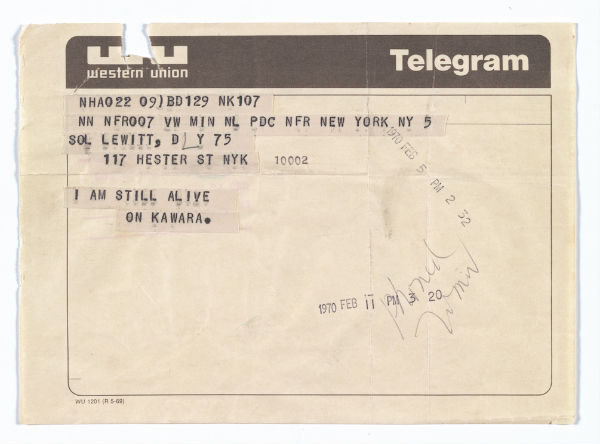
ik leef nog (i'm still alive), my grandmother would say without fail when you asked her how she was — and then she would laugh.
twenty five years after her death i still think of her often, and my mother and i, in our daily phone calls, remind each other of things she used to say and do. yesterday it was how she would always invite the neighbour around for morning coffee to avoid being asked for coffee at her house because the neighbour's coffee was bad. she would make it as people did in the war, using only a little coffee and adding roast chicory essence (buismans — you can still buy it today) to add flavour.
my grandmother was a half jew and a widow with three children who survived five years of nazi occupation and the famine in the winter of 1944-5, so still being alive was a fact worthy of pausing over (om bij stil te staan) every day — and her laugh was one of incredulity as much as anything else.
therapy should be free
“Thank you to my therapist, Ian,” television writer Cord Jefferson said in his speech accepting an Emmy Award for “Watchmen”, initially eliciting laughter from the room. “I am a different man than I was two years ago. I love you. You have changed my life in many ways. Therapy should be free in this country.’’
hear hear. all forms of care should be free in all countries everywhere, and not just for humans.
All of reality is interaction
all of reality is interaction, carlo rovelli suggests, and “there is no such thing as 'here' or 'now.' our senses convey a picture of reality that narrows our understanding of its fullness and this is also true of the “huge wave of happenings” which is a human self”.
An interview with quantum physicist Carlo Rovelli.
The condition of truth is to allow suffering to speak. — Adorno
i can't write a coherent sentence today. perhaps it's because last night i watched a mind boggling doco called #unfit – the psychology of donald trump. if you don't have the time or the inclination to watch it (free in the netherlands here) this is one thing you need to know : trump is a malignant narcissist who has his finger on a button which, when pressed, launches nuclear missiles which will completely destroy an entire country and kill millions of people. and there are other things, like : his behaviour and tactics mirror exactly those of other rightwing dictators in other parts of the world, now and in the 20th century and, not only is he hellbent on revenge when anyone crosses him or he doesn't like them, he cheats at golf — and not only when he is playing against tiger woods. you might say well there are worse things than cheating at golf, and there are. he does them too. all of them.
RIP Ron Cobb.
From birth to death we are, every last one of us, divided against ourselves. We both want to grow up and don’t want to grow up; we hunger for sexual pleasure, we dread sexual pleasure; we hate our own aggressions — anger, cruelty, the need to humiliate — yet they derive from the grievances we are least willing to part with.
Vivian Gornick — The Odd Woman and the City
From there the divisions multiply. We long for experience, we shrink from experience; we want to understand, we don’t want to understand. We confuse our neuroses for our innermost truths and in the end it all boils down to: nothing. Pointless disharmony. “Friendships are random, conflicts prevail, work is the sum of its disabilities,” she writes in another memoir, Fierce Attachments.
But then there are times when we feel ourselves whole. We stand at the center of our experience and something inside us “flares into bright life.” Under the influence of “a conviction of inner clarity,” we become eloquent, prolific — what Gornick calls our “expressive selves.” This, we feel, is the meaning of life. This is what it means to be alive.
Dayna Tortorici on Vivian Gornick
this longread in the uk sunday times by p.j.o'rourke (who seems to have mellowed a little with age thank god) is replete with pithy well-crafted sentences and pointed funny/sad observations on the current state of amerika, the election, and its history :
America is what you get when you turn a random horde of people loose in a vast and various space. Some came here on the make, some on the run, some were dragged here involuntarily as slaves, some were chased here by poverty, oppression or bigotry and some were here already and were defeated by disease and demographics until they became foreigners in their own country.
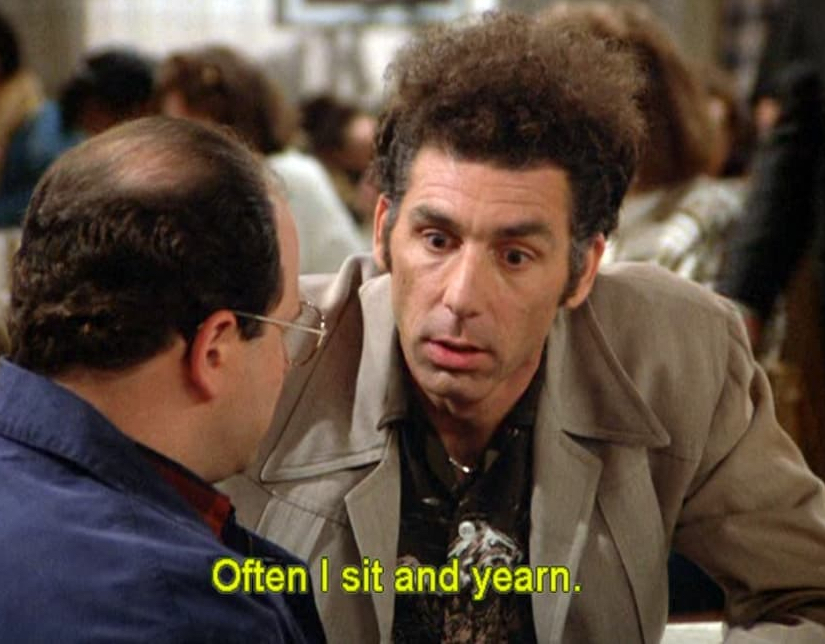
I don’t judge their bank account or their professional status. These are human beings, they are vulnerable, they need to be cared for.
and we are going to make some serious money out of their vulnerability. and what the hell? they can afford it!
french onion soup is really the nectar of the gods, a kind of european umami.
On Dec. 31, 1999, his 49th birthday, Tehching Hsieh finished a 13-year piece that consisted of not showing the art he made during that time. He created a collage with text that reads, “I kept myself alive,” which he issued the next day. He has not presented any new work since then, but when I asked if he missed art, he looked puzzled. I had not understood his position. “My work is not like an art-world definition of art,” he said. “It’s more like what you think about life. To me, art and life, it’s no difference,” he said at one point. “The work is in the living.”
from this mostly interesting NYT article on durational art
australians are not allowed to leave the country without special permission from the government and some are so desperate to at least feel like they are going somewhere that a qantas flight to nowhere which departs from and lands in sydney sold out in 10 minutes.
Punt Uit
...een intieme en hartverscheurende getuigenis van een man die zijn levenspijn paart aan een doodswens, maar tegelijk vasthoudt aan het leven. — from the review in Trouw by Belinda van de Graaf
Punt Uit is an almost unwatchable yet beautiful and compassionate portrait of the last part of the life of Michael Hellgardt by his partner Rosemarie Blank. Not to be missed.
see it here gratis (nl only)
translated literally the dutch word zelfingenomenheid would be something like 'being taken in by the self'.
meanwhile in utrecht oost :
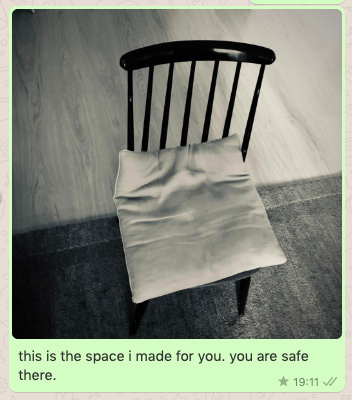
meanwhile in australia :
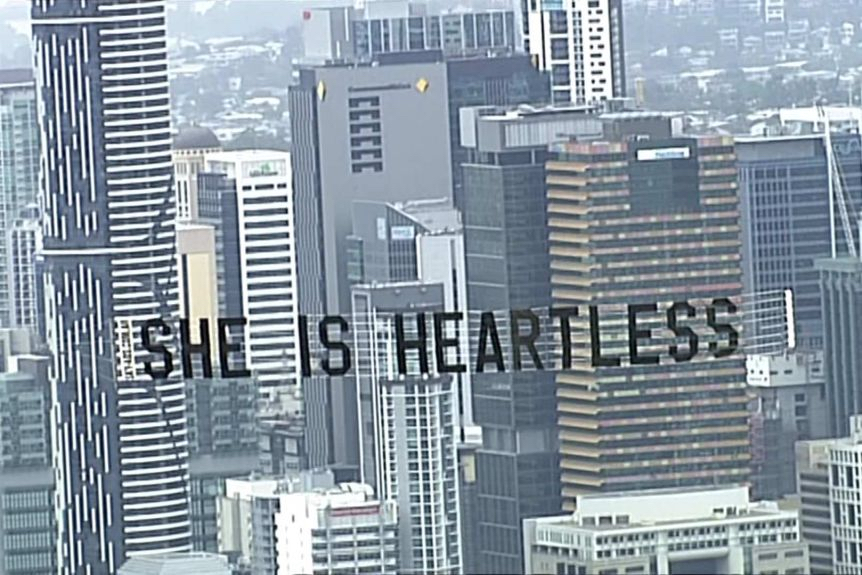
#etherdiscipline #wieisdemol2020
i don't believe in astrology but i am interested in the fact that people believe in it, and as a cultural phenomenon and for the narratives astrologers construct! the australian mystic medusa is especially good.
this is extraordinary : Niet Normaal Vies – De wereld van schoonmaker Tugrul
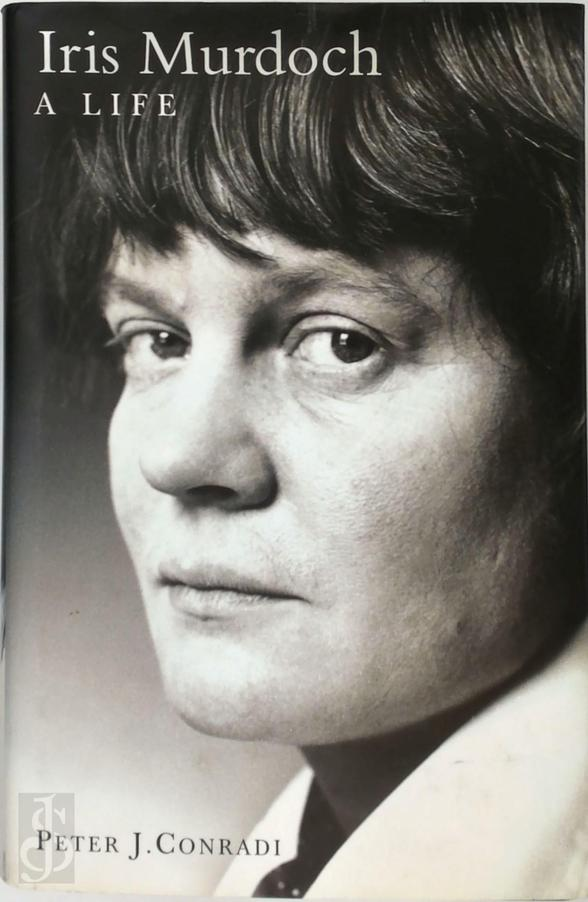
using a picture of mark e.smith on the cover of a biography of iris murdoch as an ironic postmodernist gesture was widely misunderstood and proved fatal to their career as a book cover designer.
arnon grunberg wrote a beautiful essay about me and my book and how we met for de volkskrant. it was accompanied by this lovely image made by loes faber.
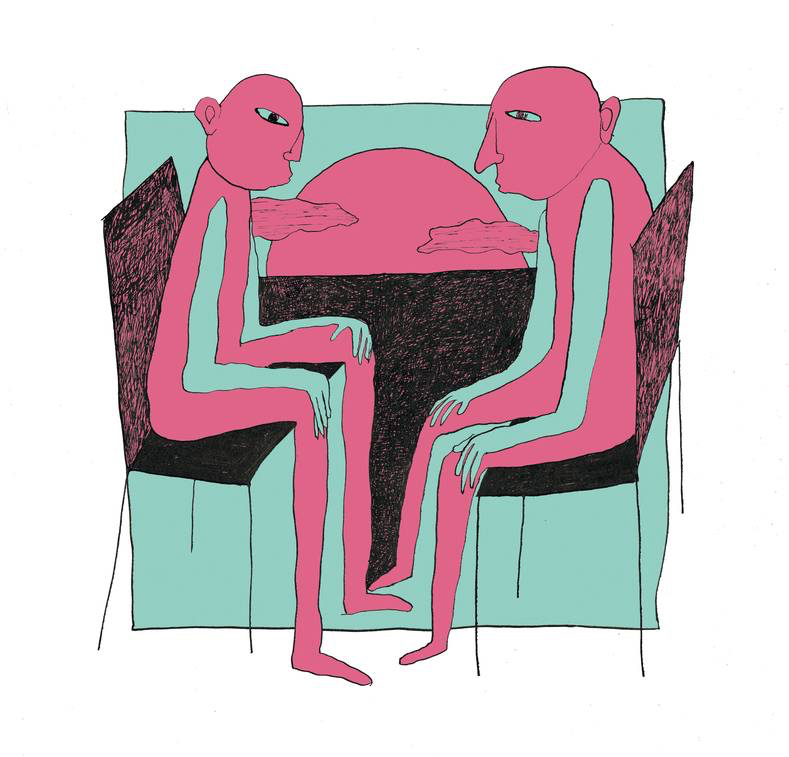
Ultimately the challenge is to undertake an ongoing, aesthetic project of total self-transformation (de prendre de soi meme), advocating a view of the self – or more accurately one's relationship with the self (rappot a soi) – as a free creation on the part of the subject...
— Foucault

come hither
we must remember, he said, that british people don't eat british fish...
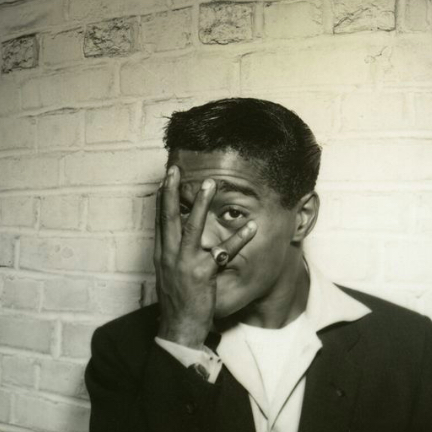
sammy davis jr converted to judaism?! i think i did know that but it was in some deep cold storage part of my memory. it took days before i realised i 'knew' it, but it's a different kind of knowing.
unfortunately to watch the documentary on tv in the netherlands you need an account.
compare and contrast : this and that.
today is a big day for charlie kaufman fans. his new film, i'm thinking of ending things is released on netflix. mashable loves it. artforum likes it a lot. the uk daily telegraph says kaufman 'did one heck of a job'. i think that means they think it's good. the times of london doesn't like it:
“The problem, alas, is that Kaufman’s sensibility, originally so light, witty and thoughtful (think of the time-looping romance Eternal Sunshine of the Spotless Mind), has here curdled into leaden misanthropy and clichéd sermonising.”
as for me i will watch it again before i venture an opinion but i will say this : it's more anomalisa than synecdoche, new york — and i hope you don't mind voice over.
”...he recommends cutting into your own flesh...”
#grapperhauseffect
leukste clickbait headline van de dag : Hart van Belgische burgemeester aangetroffen in fontein
#freezedriedlove
working with two people takes two to the power of two times as much energy (and time) as one — not one plus one.
we are milkmaids
we wait until dark before we release the perfume from
the bilobed petals of the flowers held on our downy stems.
(apologies to melissa harrison)
if i entered arnon grunberg's competition this would be my entry.
after her doctor retired, my mother, 85, was told by the new one : well you are VERY old...! which sounded to her like an accusation, as if it was her own fault.
i am not as old as my mother but much older than my father. one of the things about being or becoming old is that more and more things seem to happen which are difficult to believe, which you couldn't possibly have predicted. some of the things are good❊ and some of them are bad, really bad. one of them is that every day more people seem to give even less of a shit than they did the day before.
how can this be so?
❊ is my housing crisis over? it might just be, soon. a tiny but bright light has appeared on the horizon, not far from the border with belgium 🙂 but as the antipodeans move into spring this week my mantra is : be patient ... be humble ... want nothing ... expect nothing ... but be radically optimistic. something may be coming which is big ... big ... BIG. stay tuned!
A spokesman for Twitter said: “Our dedicated teams work to stay ahead of bad-faith actors.”
i have no idea what a bad faith actor is but i have several ideas about what it could be. i watched a lot of soap (principally the bold and the beautiful) on TV when i was an artist (and now there are the US presidential elections) but wouldn't “our dedicated teams work to stay ahead of bad-faith actors” be exactly what a bad-faith actor would say? the only thing missing is very hard as in 'working very hard' which is what spokespersons/bad-faith actors always say their dedicated teams are doing when they explain their company's latest gigantic cock up on tv.
man is god's ruin
peter falk vs columbo is a fascinating doco about peter falk and inevitably columbo (it even has a little scene from 'himmel über berlin' in which columbo is a fallen angel) but there is also plenty about his work with john cassavetes and gena rowlands — hey that rhymes with lowlands which has been cancelled this year.
speaking of his work with cassavetes i hear peter falk say something which has me scrambling for a pencil and a piece of paper. he is quoting someone who said : man is god's ruin. the dutch subtitle says : De mensheid is de ruïne van god.
as someone who didn't consume a single drop of alcohol for twelve years and then just recently ... well a year ago ... or is it two? ... in wagga wagga new south wales of all places, fell off the wagon, i was moved by this fragment from an interview with robin williams, the actor, who killed himself in 2014 when he was 63.
i don't much like the tone of this opinion piece from the uk daily telegraph about 'the world’s biggest self-help guru' brené brown but the point is that therapy takes a lot of time and work and you need to work with a therapist who is right for you, and that point is well made. but what people like brené brown are selling is not therapy but a product (and she has demonstrated that even vulnerability can be a product which is ... interesting) but this product is not aimed at the people who are locked up in psychiatric wards.
if you're in the netherlands, this is a unique and heartwarming doco about eccentric finnish gardeners. the way these people tend their pumpkins and talk to them in a language which sounds like it was invented by beings from another planet is something to behold.
Naarmate het licht zich verder van de ochtendstond verwijdert en dieper in de dag doordringt, raakt het aan lager wal, en het vindt zijn waardigheid (ethiek van de avondschemering) pas terug op het moment dat het verdwijnt.
A.L.Snijders gaat wandelen en leest onderweg E.M.Cioran
three good things : 1. the heatwave is finally over; 2. my piece in Trouw, together with some of the other contributions to the series Zin in het alledaagse by Henk Steenhuis, is going to be published as a book by Ten Have in 2021; 3. yesterday someone i am working with found a way to overcome the superego.
on witchmongers
I am interested less in what it is people believe than how they came to believe it. What does it take for someone to believe in something, for example a magic trick or witchcraft, or that the earth is flat or well ... gods.
Apparently magicians stress the importance of a 'plot' when you perform a magic trick. You see this in the spectacular plots devised by Derren Brown.
Might this be why conspiracy theories are so popular? The plot there is, in general terms, that there are people trying to pull the wool over your eyes but you are smarter than they think you are and you and your fellow conspiracy theorists are onto them.
The Christians came up with an especially irresistible plot which served them well for millennia, namely : someone who has superpowers loves you (what me? yes you!) unconditionally and also it is possible to die and to rise again and go to heaven. And all that is required of you to make this happen is to believe in them and to do what they say.
I discovered the importance of the plot in magic tricks by way of this semi-interesting story in The Times about a book called Discoverie of Witchcraft by Reginald Scot published in 1584.
The book sought to reveal the kinds of tricks used by magicians illusionists and sorcerers to make people believe certain things, especially their magic powers.
The book was groundbreaking and controversial at the time of its publication by Scot, a country gentleman from Kent. Though revered by magicians for its detailed descriptions of tricks including those involving cups and balls, playing cards and a knife “through the arm”, its primary purpose was to debunk claims about witchcraft at a time of growing hysteria across Europe.
As Scot saw it, so-called witchmongers abusing their authority sought to “pursue the poore, to accuse the simple, and to kill the innocent”. He warned readers with “chaste ears” to skip over his sections regarding the “filthie and bawdie” assertions of witchmongers regarding women’s sexual intercourse with demons.
The book was pivotal in changing attitudes and limiting the persecution in England of alleged witches, who faced the death penalty under an act of 1563.
What was that about pursuing the poor, accusing the simple, and killing the innocent? There are still plenty of witchmongers among us, it seems.
acedia
Medieval monks were prone to something called acedia—a “kind of unreasonable confusion of mind,” as the ascetic John Cassian wrote in the fifth century, in which they couldn’t do much of anything but go in and out of their cells, sighing that “none of the brethren” came to see them, and looking up at the sun “as if it was too slow in setting.” As scholars have pointed out, acedia sounds a lot like boredom (depression, too), although a particular judgment was attached to it: acedia was sinful because it rendered a monk “idle and useless for every spiritual work.”
Two articles on boredom in one day, one rather good, in the new yorker, and the other kind of ... boring, but then it was written by a psychologist.
the best job i ever had was working for the publications distribution cooperative in london in the late seventies. one of my publishers was cienfuegos and the anarchic telephone conversations with stuart in the orkneys were among the highlights of my working week.

if joggers were able to watch themselves jogging from behind they would just walk.
rescuing the formless from the form
as a young punk and would be writer i came under the spell of doris lessing, first through her science fiction (canopus in argus) and then through the golden notebook which was completely dazzling. a nice piece in the new york times today by karan mahajan reminded me about the importance of that book which should be read by every would be writer but, perpetually struggling for words to describe the kind of work i do with people, i was struck by this sentence :
Anna quits years of therapy, recognizing it is an evasive way of “rescuing the formless into form.”
what i practice is exactly the inverse : it is a non-evasive way of rescuing the formless from the form (and in this way it is not so very different from what i did as an artist) and perhaps this is why it is better not to call it therapy at all.
Max Scheler :
“Ours is the first period when man has become completely and totally problematical to himself, when he no longer knows what he is, but at the same time knows that he knows nothing.”
aevum
For Thomas Aquinas, “aevum” is “the mean between mortal time and divine eternity,” that is, “the measure of endurance enjoyed by angels, saints, and other celestial creatures.”
— from the end notes to Lay Studies by Steven Toussaint via this review.
have you heard the joke about the guy whose ex-wife said she was going to australia?
you haven't? click here!
i am an even toed ruminant.

Toni Morrison:
We die. That may be the meaning of life. But we do language. That may be the measure of our lives.
From “The Nobel Lecture in Literature.” 1993. In The Source of Self-Regard: Selected Essays, Speeches, and Meditations (New York: Alfred A. Knopf, 2019).
— via Michael Leddy’s blog Orange Crate Art.
yes. but i don't know. it's poetic and all, but isn't what we do, what we give, how we love — as well as what we say and hear and write and read, the measure of our lives?
and you would say : and also how we sing...
i dreamed i employed an australian woman to go fishing for me. after only an hour she came back with a bag full of plump and shiny fish and handed me a bill for two hours labour.
i said : but you were only gone for an hour, darling.
note : i rarely eat fish but i like to walk through fish markets and look at all the splendid fishes. they are like creatures from another planet.
any ideas for interpretations are welcome.
Mortals who are still alive are by definition on a vacation, some more than others, to paraphrase Améry.
even if you're highly suspicious of art and artists — and you should be — this doco on eva hesse called 'tracing the rope' is great, but you can only watch it via that link if you're in the netherlands.
or if you have VPN with a dutch server option :)
not tropical :
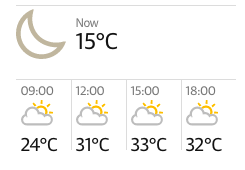
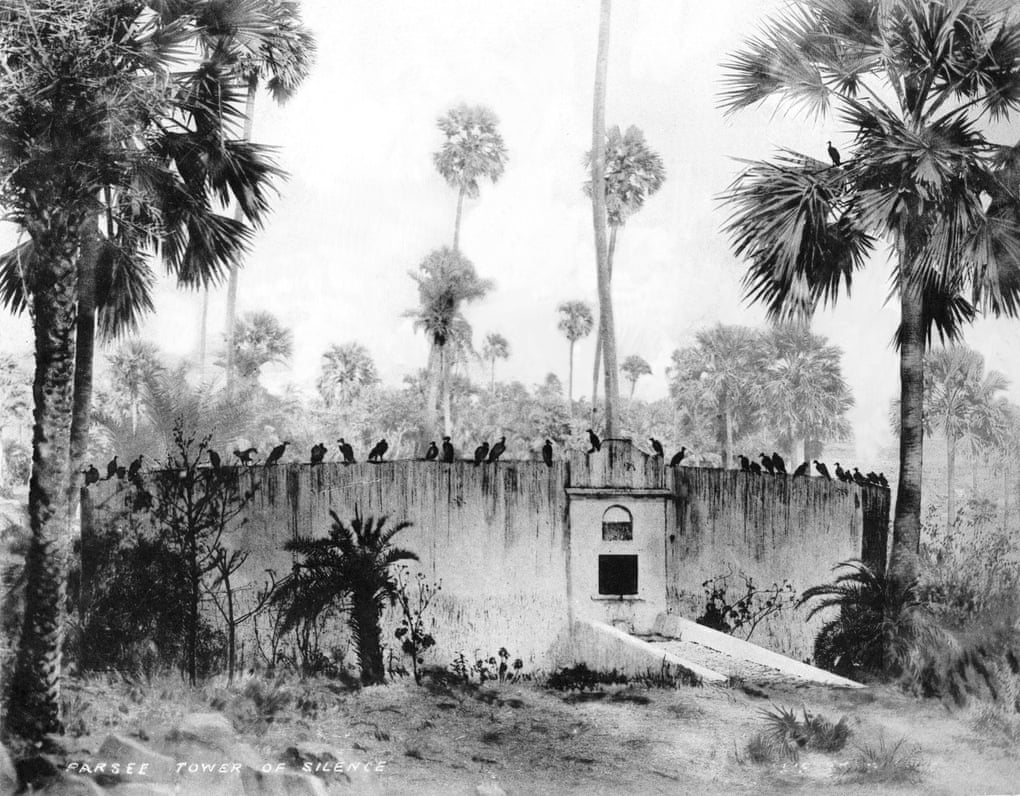
zoroastrians have an interesting answer to the age old question which believers in an omnipotent omniscient supernatural being wrestle with in private and which non-believers use in their pointless arguments with and against the believers : why, if god exists, does he allow there to be so much suffering on earth?
of course there are sound theological responses to that question but the problem with theology is that theological responses only hold water within the context of theology. you might say, well it's because of what happened in the garden of eden but for a non-believer this is not a satisfactory answer.
from a narrative perspective you might say, well what would be the point of heaven if everything was 100% hunky dory on earth? so suffering exists to make heaven, and thus believing in god, more attractive.
so the zoroastrian god, ahura mazda, has a problem : he is not omnipotent! he is omniscient though, which seems odd. wouldn't omniscience go hand in hand with omnipotency? but you can't argue with religious beliefs because they are not based on reason or logic — or, for that matter, on demonstrable facts. that's why it's called faith, as the local vicar who later became a bishop explained it to me when i was an agnostic teenager who desperately wanted a reason to believe.
ahura mazda is locked in a permanent battle with an evil spirit called ahriman and famine, disease, killings and other evils are not the work of a jealous and vengeful god, but are instead the temporary triumph of ahriman.
you can read more about the zoroastrians here. they also also have an interesting way of disposing of the bodies of their dead.
i agree with almost nothing freud said about the superego — also i don't agree with the person who decided to translate Ich as 'ego' and Über-ich as 'superego', and especially Es (you are also an it!) as Id, but that's neither here nor there.
the point is : Freud identified the Über-ich and for this we will be forever grateful. a thousand years from now he will be remembered for this, provided the human race is still around then and the planet would prefer it if it wasn't but who knows, humans might reinvent themselves. i am not a humanist but i am not an anti-humanist either. for all i know i may be an ahumanist, but i'd have to read patricia maccormack's book first.
i would say i am a radically optimistic posthumanist.
what's in a name? a rose is a rose is a rose, and a banded demoiselle damselfly is a banded demoiselle damselfly — although it is moot whether the latter is worthy of its name during the two years it spends in larval form skulking in river mud and waterweeds before finally rising from the reeds with a metallic blue body and iridescent wings glinting, to drift over the river. (via)
perhaps the human species does not realise its full potential until it embraces its own extinction. patricia maccormack who is interviewed here in trouw (in dutch) invites humans to do just that, which is why, i expect, she prefers to speak in terms of 'ahuman' rather than 'posthuman'.
i am looking in foxgloves for sleeping bumblebees.

eric idle : i don't like the word 'atheist'. it implies that there’s a god not to believe in.
last night watched most of a movie by mia hanson love called goodbye first love. i wish i could like her films more, they tick all the right boxes and she says all the right things about film making in interviews — but something is missing.
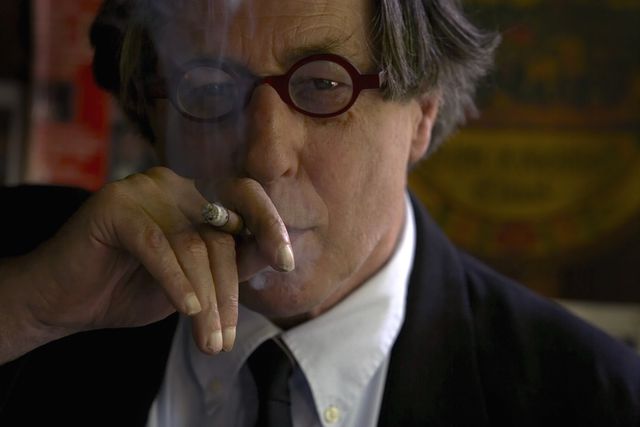
RiP Maarten Biesheuvel (1939-2020)
Schrik niet, de aardbei denkt.
He wrote that he went through life 'amazed, perplexed and in a state of wonder' and he managed to put that way of living into words and transmit it via the page and with his breathless readings. He made me unafraid of magical thinking.
Arnon Grunberg wrote this nice piece on him in 2007 for the NRC. The lovely title is either Grunberg's own invention or that of a subeditor at NRC (if they still exist) and here is an obituary.
both seasons of errol morris's first person from 2000/2001 are now viewable free on youtube. the only truth (S02E02) is an interview with mob lawyer murray richman who says, many years ago my father told me moshi, life is a holem — a holem means a dream — that which was, can never be again and just as much of reality is a dream as what you dreamed the night before. it's of no consequence.
my mother sent me a picture of my-so-called-self with a stupid look on my face from ten years or more ago taken in the old V&D in utrecht. on the back she has written 'good old times'.
the picture was stuck, not very well, on to an old postcard and was easily separated — underneath was a gouache of an exquisite tulip that doesn't exist anymore painted by a woman called judith leyster in 1643, the height of tulipmania.

this is a different but very similar painting of the same tulip, the admirael van der eijck. it is a 'broken' tulip, “its colors splitting between a flat white and a lovely, soft red.”
and yes. now you may ask the obvious question, to which there is no answer.
for no particular reason, other than that it's there and well ... it is really nothing and something at the same time, here is the fall with new face in hell ... no wait ... only kiddin' ya ... yo la tengo with i heard you looking.
this rather nice, and useful, word was unknown to me : quiddity — the inherent nature or essence of someone or something or a distinctive feature; a peculiarity: his quirks and quiddities. it is from the Latin quid = ‘what’, so one might say quiddity = the whatness of a person or thing.
to be a bee
between 1853 and 2012 there were only 56 recorded cases of zoanthropy, which is when, if you're asked, what are you? you would answer, i am a chicken, or i am a dog or i am a bee.
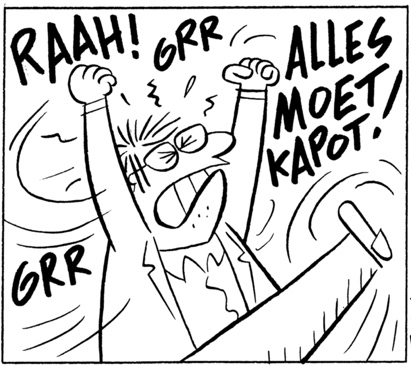
anger is interesting.